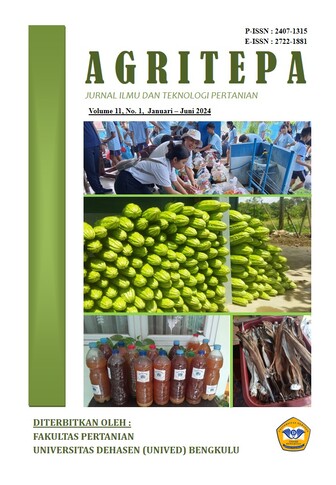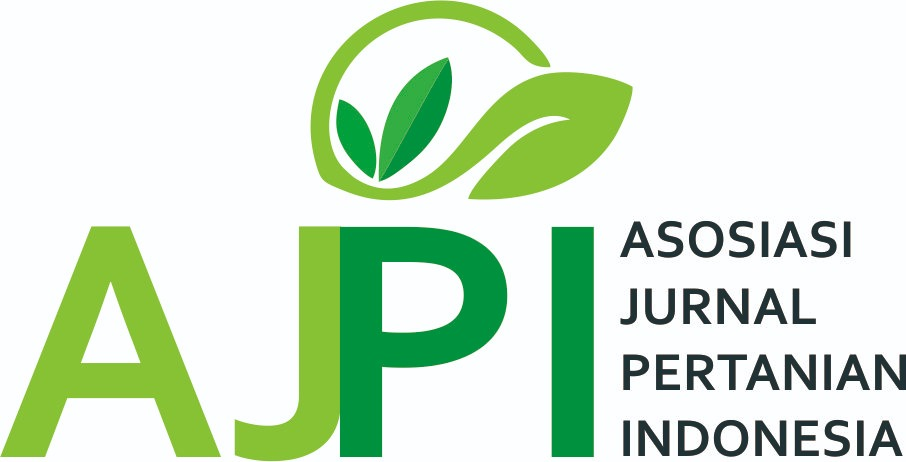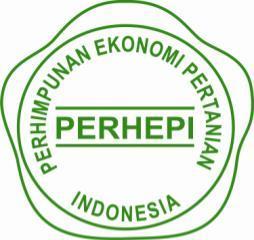Impact of Green Investment and Jobs on Poverty via Sustainable Development
Abstract
Purpose: This study evaluates the influence of green investment and green jobs on poverty reduction with sustainable development as a mediating variable. Methodology: Using a descriptive-quantitative method, secondary data from the Central Bureau of Statistics of South Sumatra from 2016-2020 were analyzed using a panel regression model. Results: The results indicate that green investment and green jobs affect poverty reduction through sustainable development in South Sumatra Province. Findings: Challenges include green infrastructure development and policies supporting green investment and job creation. Novelty: This research provides insights into the impact of green investment and green jobs on poverty reduction within the context of sustainable development. Originality: The study offers a detailed analysis of how green investment and green jobs contribute to poverty reduction and sustainable development. Conclusions: Green investment and green jobs have the potential to reduce poverty and achieve sustainable development but require collaboration among the government, private sector, and society. Type of Paper: Empirical Research Article
Downloads
References
(UNESCAP), United Nation Commission of Economics and Social for Asia and The Pacific. (2013). Green Growth Indicators: A Practical Approach for Asia and The Pacific: A. Greening of Economic Growth Series.
Tran, Thi Thanh Tu, Hong Nhung Do, Thi Ha Vu, and Nguyen Nguyet Minh Do. (2020). The factors affecting green investment for sustainable development. Decision Science Letters 365–386.
Sulich., A., M. Rutkowska., and L. Poplawski. (2020). Green jobs, definitional issues, and the employment of young people: An analysis of three European Union countries. Journal of Environmental Management 262. DOI:10.1016/j.jenvman.2020.110314.
Sari, Septiana, and Joko Setiyono. (2022). The Development of Green Investment and Its Policies in The Regulation of The Indonesian Government. Lambung Mangkurat Law Journal 118 - 131.
Kemenperin. (2021). Kementrian Perindustrian Republik Indonesia. November 30. https://kemenperin.go.id/artikel/22970/Terapkan-Industri-Hijau,-Sektor-Manufaktur-Hemat-Energi-Hingga-Rp3,2-Triliun.
Eyraud, L., A.A. Wane, C. Zhang, and B.J. Clements. (2011). Who’s Going Green and Why? Trends and Determinants of Green Investment (IMF Working Paper No. 296). . International Monetary Fund (IMF).
Obradović, L.S. (2019). Environmental Investments. In Climate Action. Encyclopedia of the UN Sustainable Development Goals, by A. M. Azul, L. Brandli, P. G. Özuyar, & T. Wall L. Filho, 1-12. Switzerland: Springer Nature.
Acosta, L.A., S. Zabrocki, J.R. Eugenio, R. Jr. Sabado, P.S. Gerrard, and H.G.H. Luchtenbelt M. Nazareth. (2020). Green Growth Index 2020: Measuring Performance in Achieving SDG Targets. . Seoul: : Global Green Growth Institute.
ILO. (2011). Two Defining Challenges for the Twenty-first Century. In Decent Work, Green Jobs and the Sustainable Economy. . Geneva, Switzerland: : International Labour Organization (ILO).
Moreno-Mondejar, L., A. Triguero, and M.C. Cuerva. (2021). Exploring the association between circular economy strategies and green jobs in European Companies. Jurnal of Environment Management Vol. 297, https://doi.org/10.1016/j.jenvman.2021.113437.
Dewi, Rafika, and Ahmad Maruf. (2017). Analisis penciptaan green jobs (Pekerjaan Hijau) di Indonesia menggunakan model skenario investasi hijau. Journal of Economics Research and Social Sciences 1, no. 1 53-64.
Rayan, E.O., A.M. Ragab, and A.S. Anwar. (2020). Determinants of green job creation: an empirical investigation. International Journal of Social Economics, Vol. 47 No. 7, pp. 887- 911. https://doi.org/10.1108/IJSE-01-2020-0012.
Lukas, E.N. (2015). Green Economy for Sustainable Development and Poverty Eradication. Mediterranean Journal of Social Sciences, Vol 6 No 6 S5 December 2015 Doi:10.5901/mjss.2015.v6n6s5p434.
Razminienė, K., and M. Tvaronavičienė. (2018). Detecting the linkages between clusters and circular economy.
Terra Economicus, 16(4) 50-65 http://doi.org/10.23683/2073-6606-2018-16-4-50-65.
Alisjahbana, Armida Salsiah, and E. Murniningtyas. (2018). Tujuan pembangunan berkelanjutan di Indonesia : konsep, target dan strategi implementasi (2nd ed.). Bandung: Unpad Press.
Ishartono, and Santoso Tri Raharjo. (2016). Sustainable Development Goals (SDG) dan Pengentasan Kemiskinan. Social Work Journal 154-272.
Copyright (c) 2024 Yendra Kardiansya, Ketut Sukiyono, Izharudin Izharudin (Author)

This work is licensed under a Creative Commons Attribution-ShareAlike 4.0 International License.
Author retains the copyright and grants the journal the right of first publication of the work simultaneously licensed under the Creative Commons Attribution-ShareAlike 4.0 License that allows others to share the work with an acknowledgement of the work's authorship and initial publication in this journal













